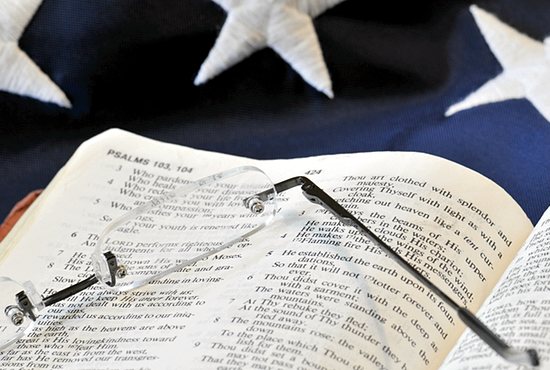It is therefore fitting that when the Bill of Rights was ratified, religious freedom had the distinction of being the First Amendment. Religious liberty is indeed the first liberty.1
Political partisanship often turns the average citizen away from participating in the political process. Too frequently, issues are only seen as Republican or Democrat, liberal or conservative. Religious liberty is not a partisan issue, nor is it ideological. The United States of America was founded on the principle of religious freedom and no political party can claim it as its own. Allowing religious institutions to operate according to their mission without interference from the government is a more accurate understanding of the often used phrase “separation of church and state.” In recent times, regrettably, the First Amendment constitutional right to religious liberty has come under attack.
At both state and federal levels, adversarial organizations and policies have sought to exert greater state authority over religious organizations and the manner by which they operate, such as abiding by sexual orientation and gender identity (SOGI) laws when they receive government contracts. Such intrusion poses significant concern for religious organizations and their freedom to serve the poor and vulnerable in accord with human dignity and the Church’s teaching. The right to serve the public according to a religious organization’s mission and conscience is a hallmark attribute of religious liberty. Additionally, the right of the people in the pew to live their faith in every aspect of their life must be protected. Here in Minnesota, business owners who decline to offer facilities or services for same-sex wedding ceremonies have been threatened with legal action and, in at least one case, have already been punished with heavy fines by the state. Some Minnesota legislators have promised to introduce legislation in 2015 that mirrors the federal HHS preventive services mandate, and which requires employers to provide contraceptives and abortifacient drugs in their health plans. These troubling trends must be resisted and important rights of conscience and religious liberty must be protected and defended by elected officials. We should not have to always rely on courts to protect our most basic freedoms.
- Where does the candidate stand on the right for religious institutions to operate and serve the general public in a manner that is consistent with the organization’s faith-based mission?
- Where does the candidate stand on the right of individuals to live their faith in their school, their place of employment, in their chosen profession or in their business?
Back to the Voter’s Guide




